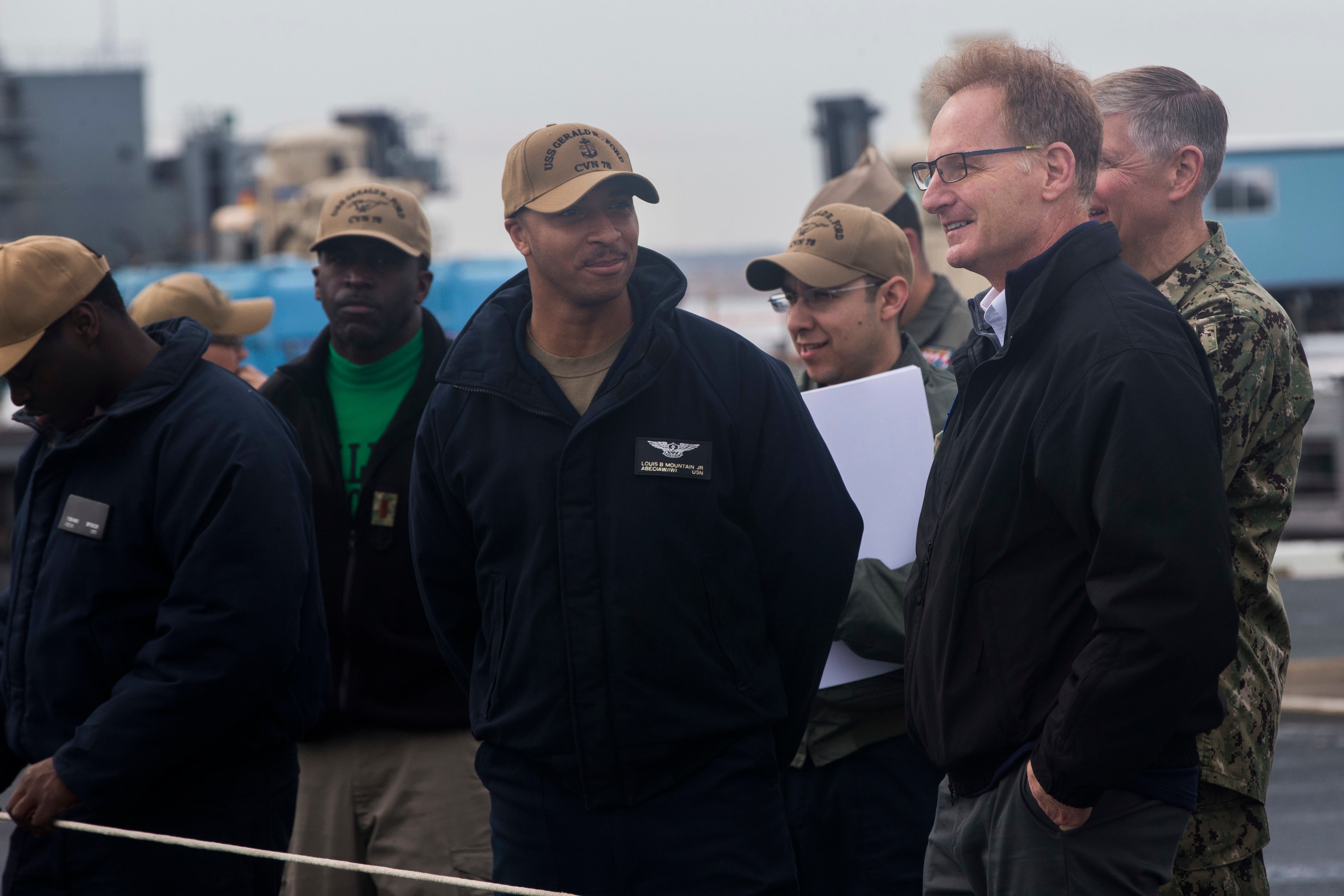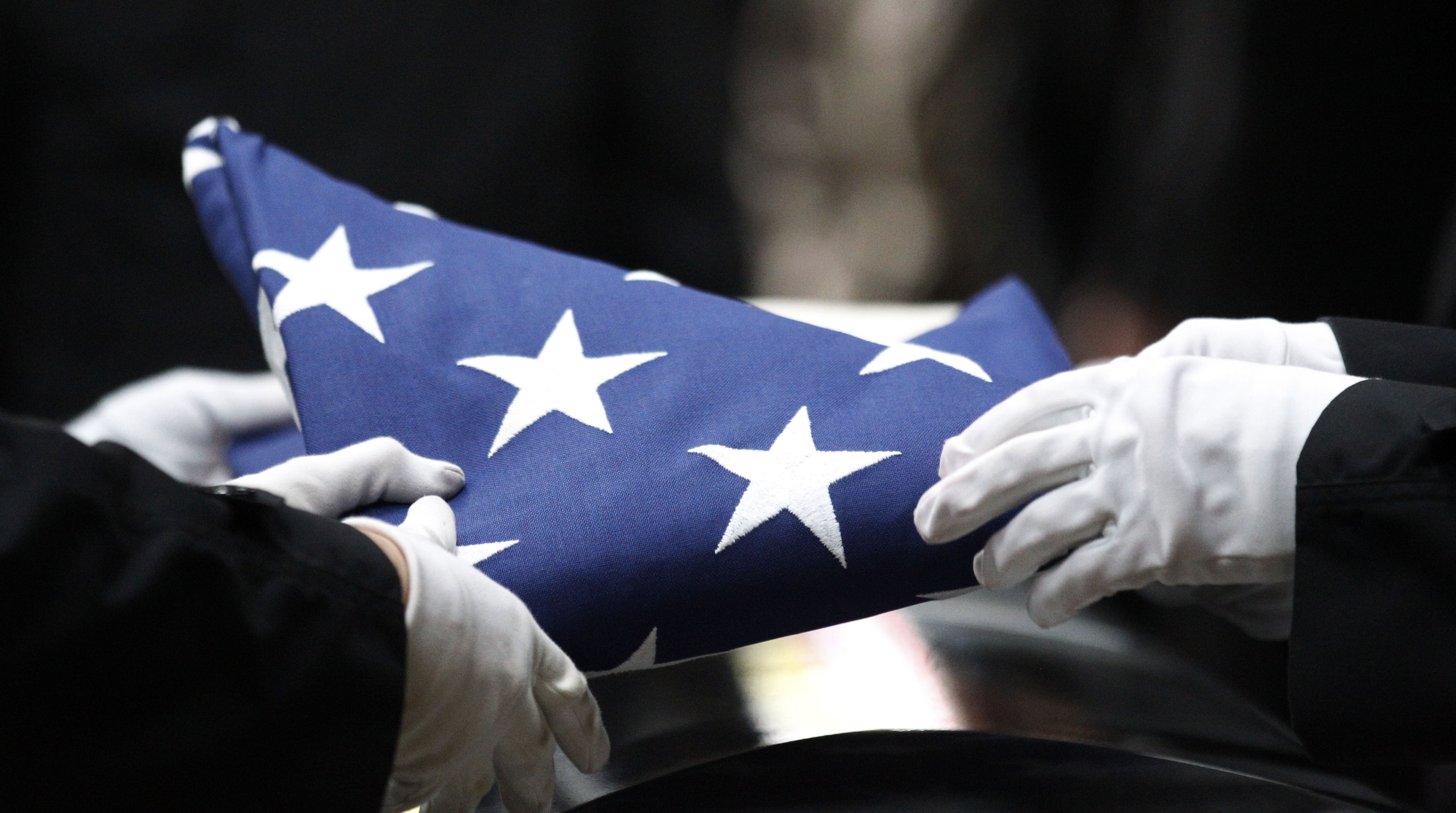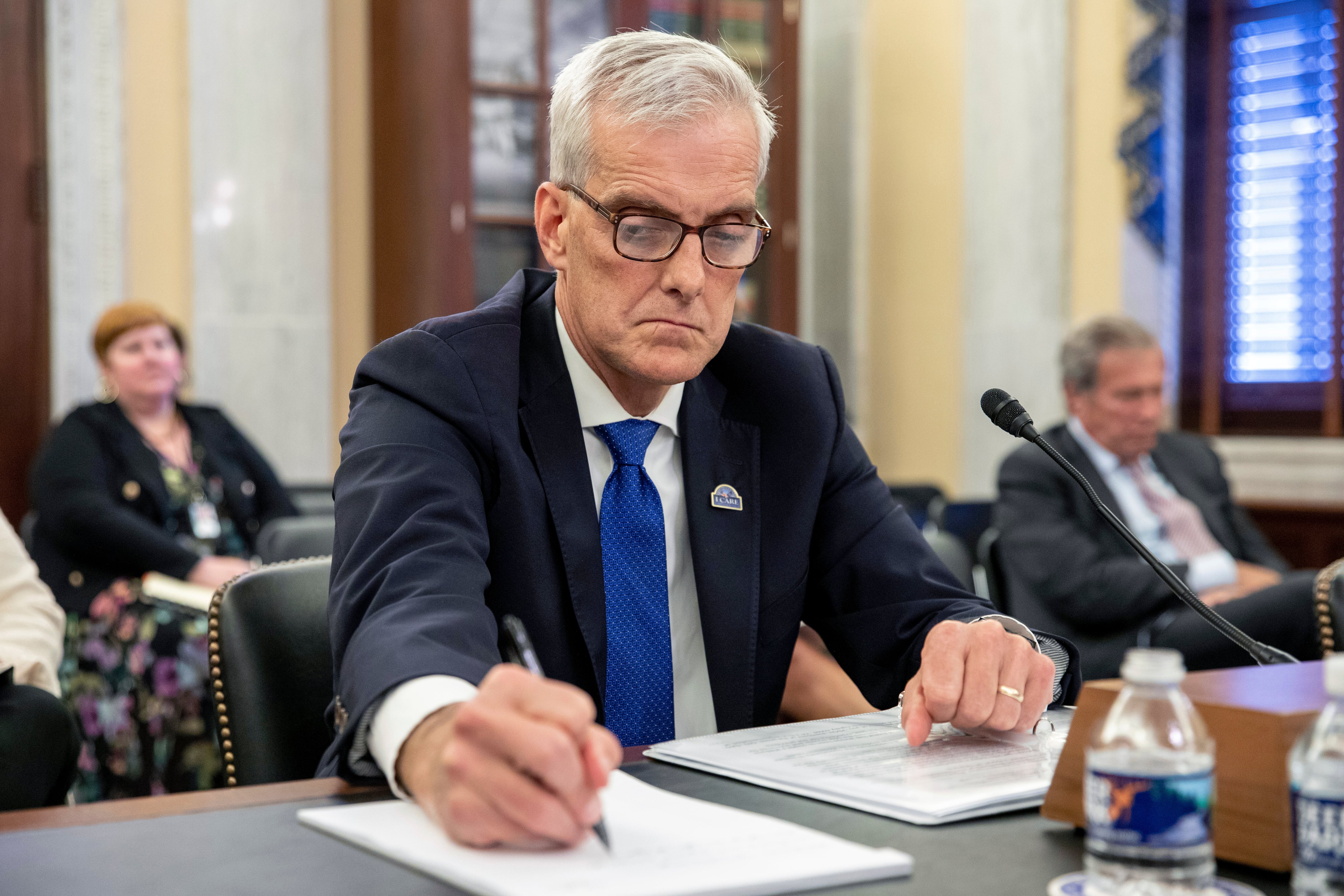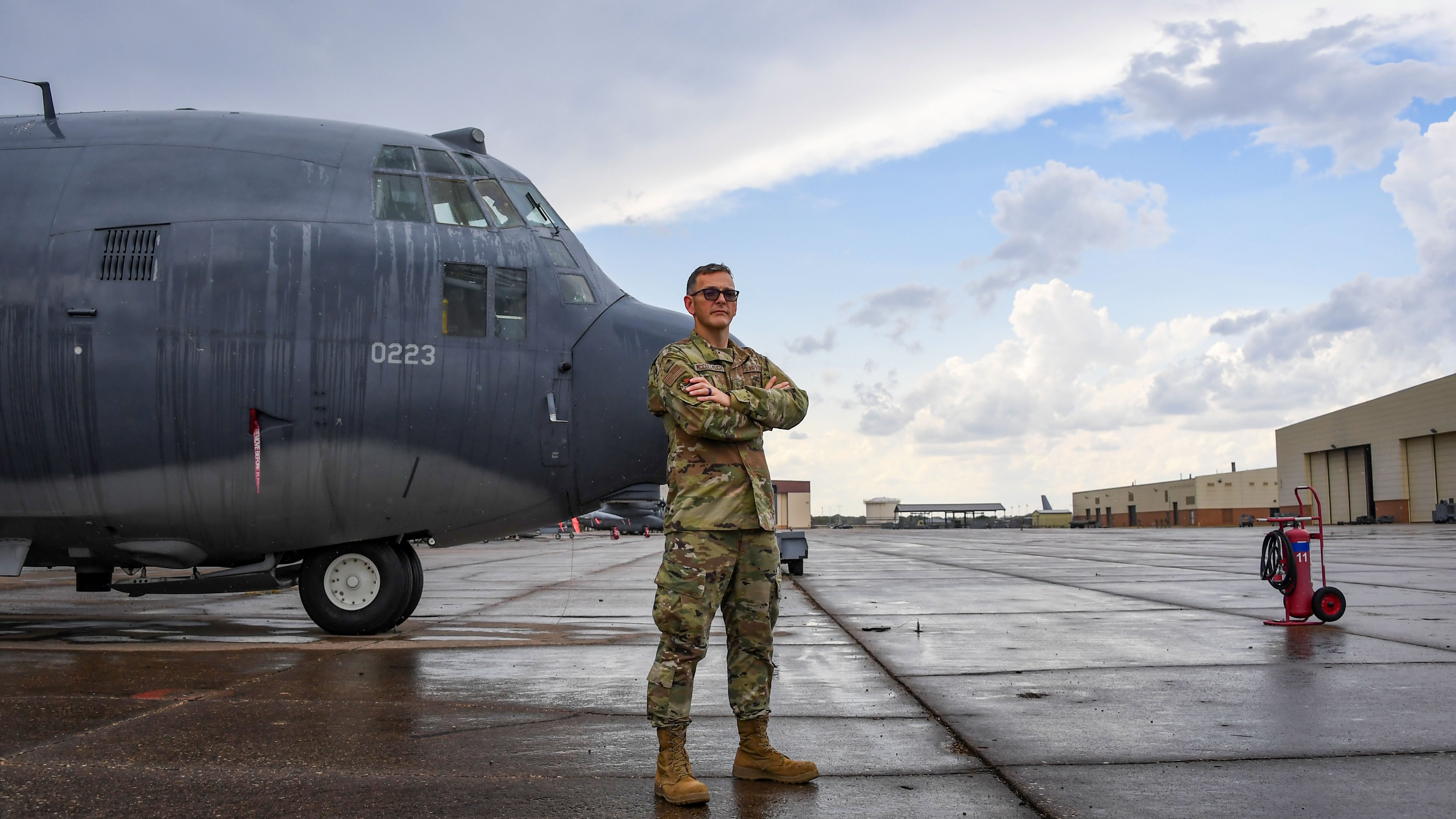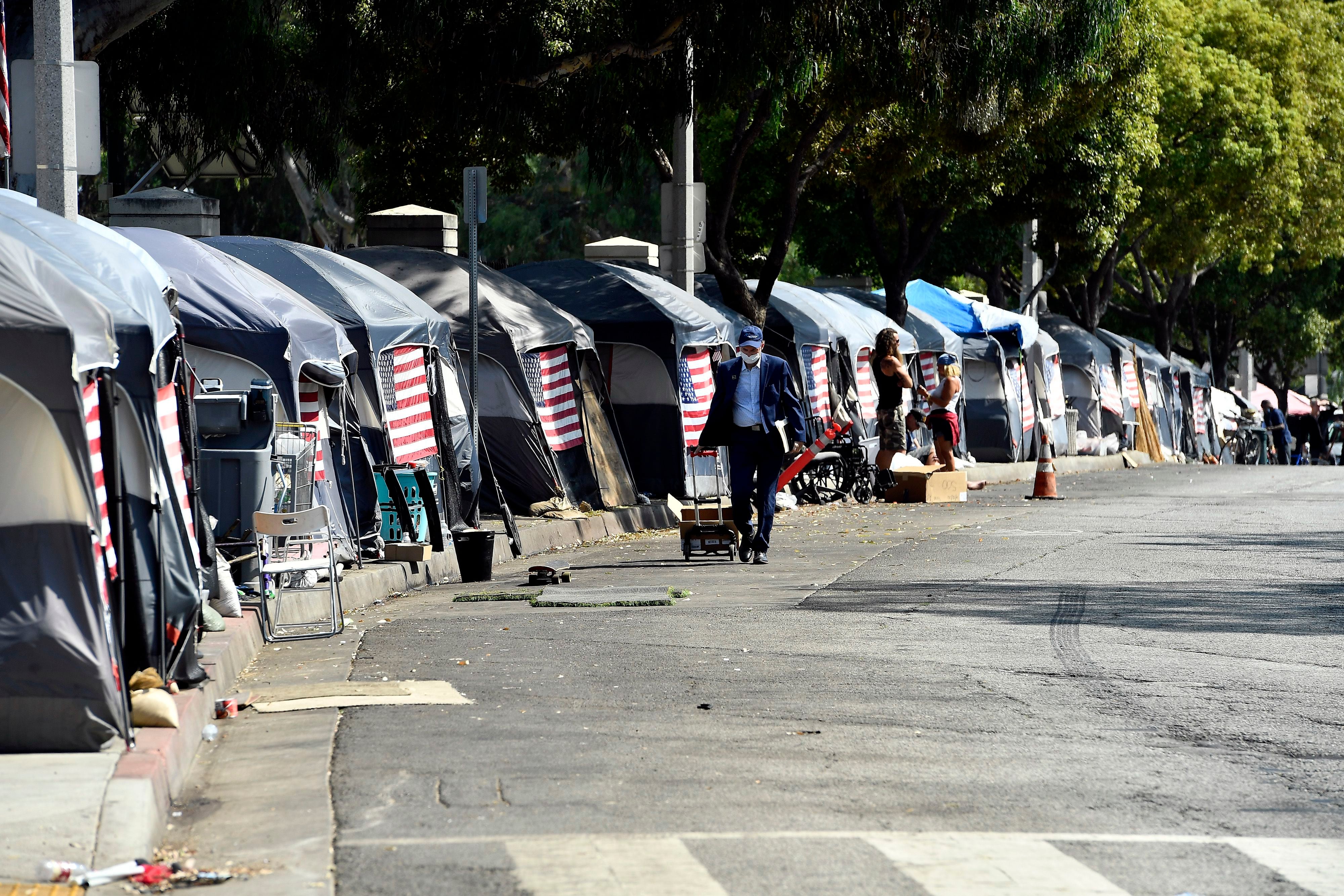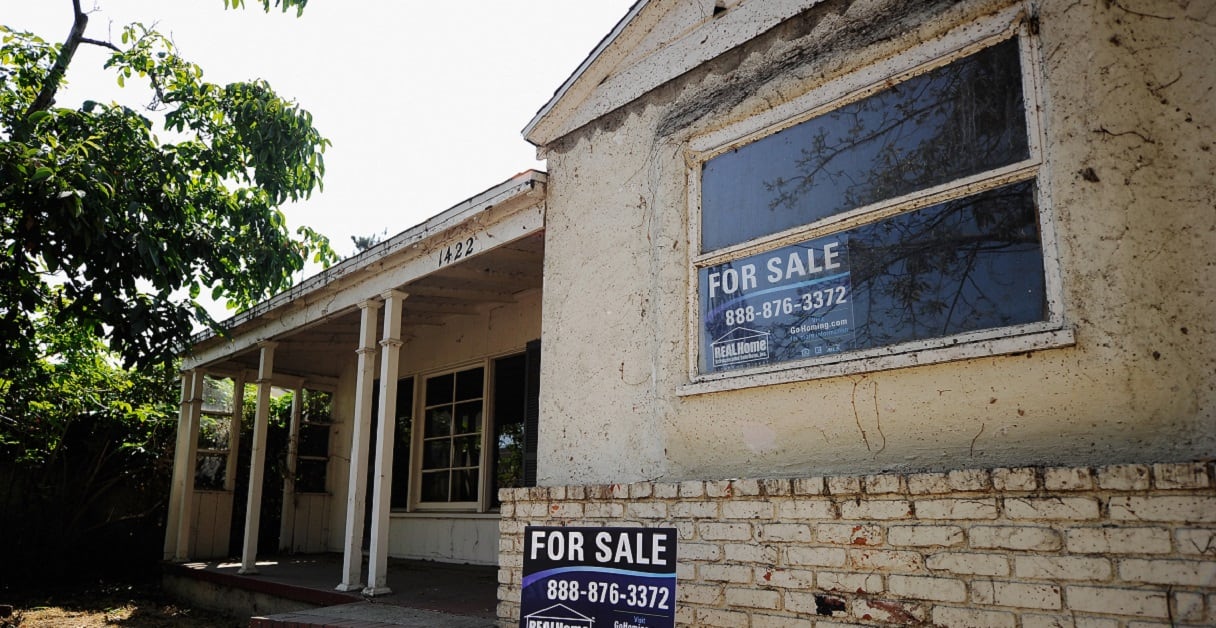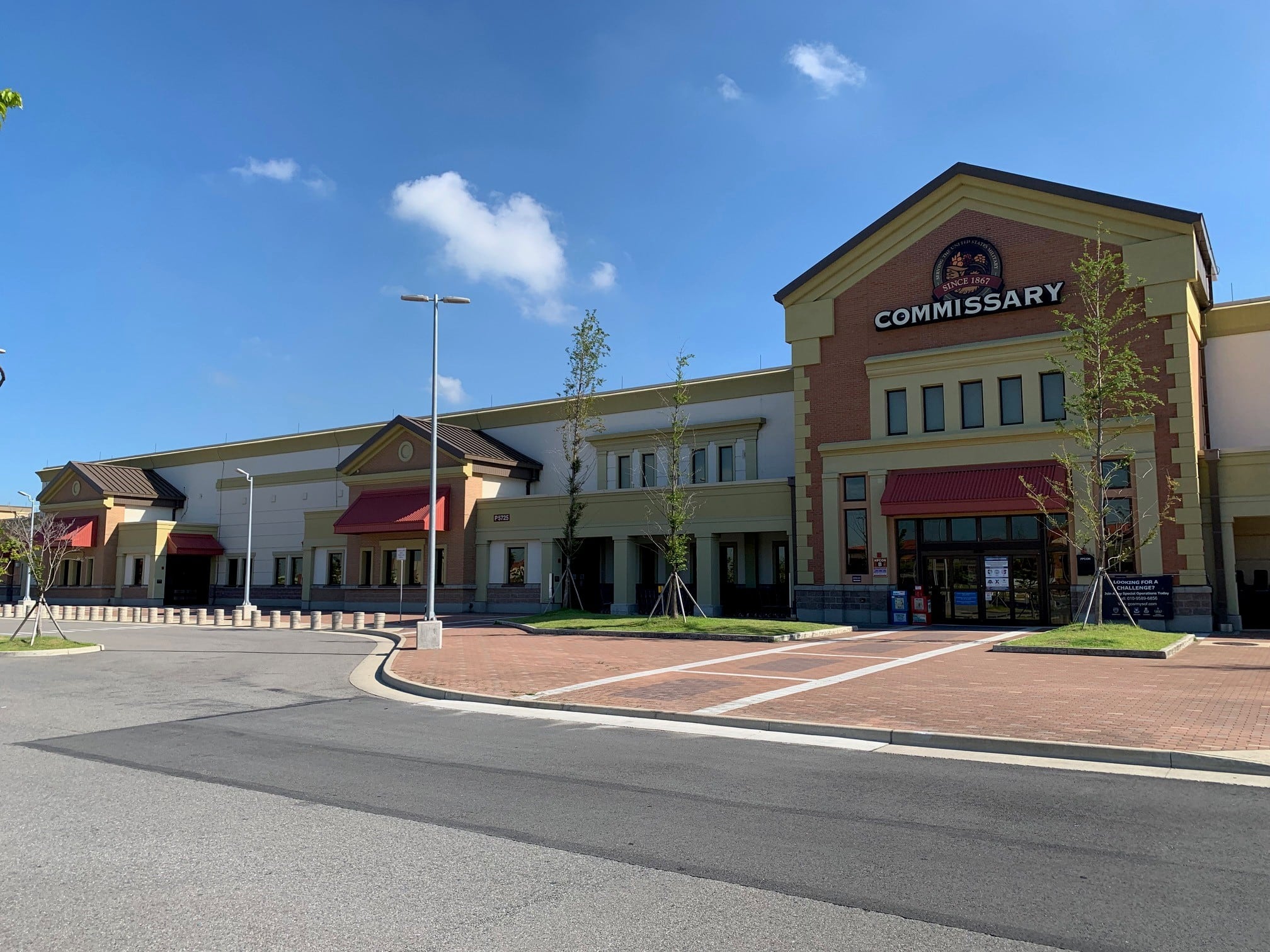Thomas Modly wants you to know that he cared.
His five months as acting Navy secretary ended in April 2020, after he fired the captain of the COVID-stricken aircraft carrier Theodore Roosevelt, Capt. Brett Crozier, whose leaked email about COVID conditions aboard the ship sparked a national uproar in the pandemic’s frenzied early days.
Modly incurred further ire when he addressed TR’s crew following the firing, and someone recorded his at-times testy speech and leaked it to the media, prompting him to resign.
Before that, he was under secretary of the Navy from 2017 to 2019.
Modly’s book, “Vectors: Heroes, Villains and Heartbreak on the Bridge of the U.S. Navy,” came out last year. It offers not only his take on the TR imbroglio, but an inside look at life in the Pentagon, serving under President Trump and the difficulties of pushing change forward within the Department of the Navy.
It reveals that Modly suggested that top Navy brass directly check in on the TR after its mid-deployment COVID outbreak sidelined the ship in Guam, and how the brass did not do so.
RELATED
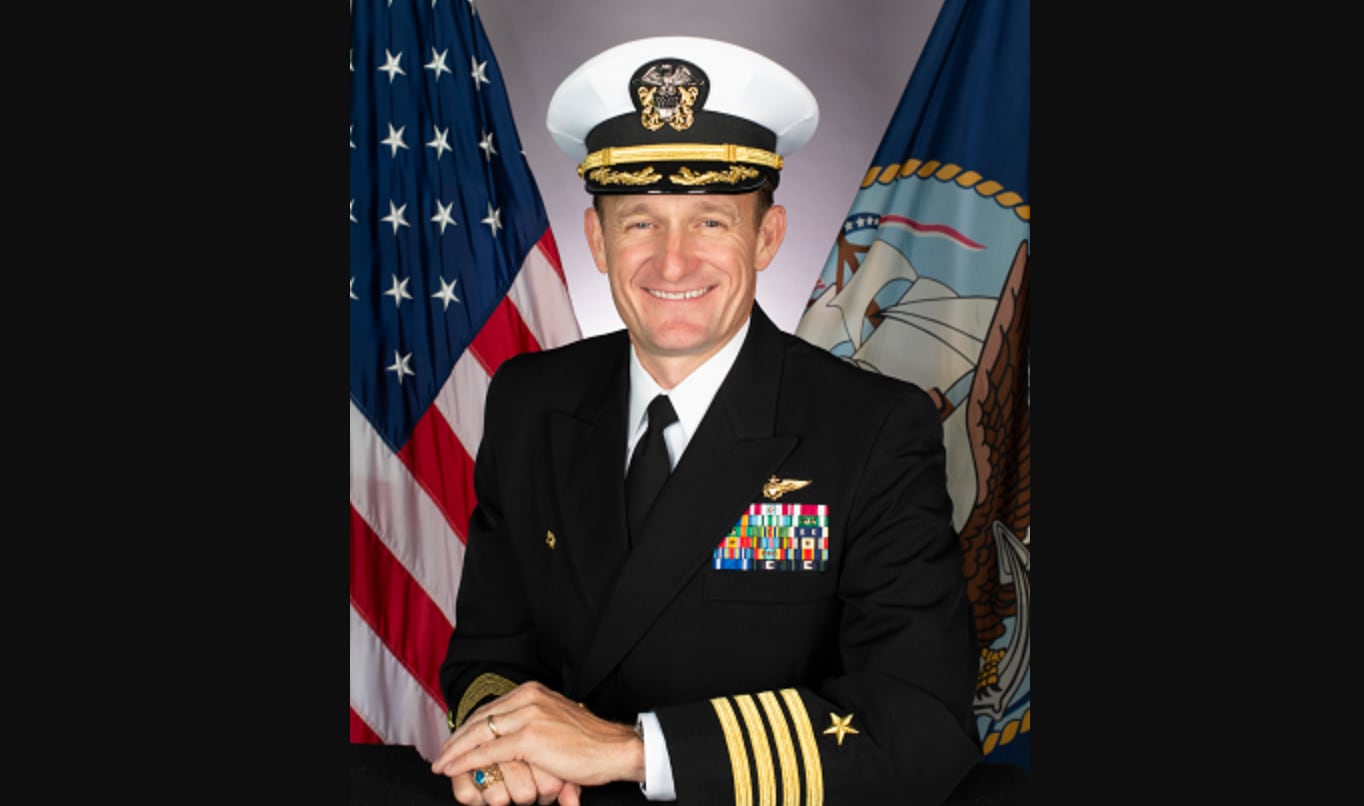
The book also details how Modly and his family faced death threats after he fired Crozier, and a shouting match he got into with then-Chief of Naval Operations Adm. Mike Gilday.
Nearly four years later, Modly stands by his decision to relieve Crozier and said every move he made was done with the interests of the Navy and its sailors in mind.
While he holds little doubt that Crozier cared most about his sailors, Modly said he cared too.
“That would be my expectation, that no one cared more for his crew than then he did,” Modly told Navy Times. “But what I hope that he’s not suggesting in that comment is that anybody, either in his chain of command and to include me, cared any less than he did.”
“All of us were heavily engaged in making sure that that crew was safe and clear of COVID and that that ship could get back out to sea,” he added. “So, I’m glad that he feels that way. I would hope that he feels that way, but I would also say that, although no one cared more, there was nobody in his chain of command that cared any less than he did either.”
Now working in the private sector, the former Navy officer and U.S. Naval Academy alum sat down with Navy Times to discuss the book and his time leading the sea service.
This interview has been edited for grammar, syntax and length.
Navy Times: I wanted to start our questions today with a theme that you touch on several times in the book: The occasional friction between the civilian leaders of the Navy in the secretary’s office and the uniformed brass, particularly the chief of naval operations.
The book reveals you being at odds with former Chief of Naval Operations Adm. John Richardson regarding some of your and former Navy Secretary Richard Spencer’s education policies.
You also write of some tension you experienced with [former] CNO Adm. Mike Gilday as well when it came to the response to the COVID outbreak aboard the Theodore Roosevelt.
Do you think these challenges are endemic to any civilian SECNAV leading the uniformed sea service? Are the admirals at the top always going to be hesitant to change that their civilian bosses push from outside their uniformed ranks? Following up on that, do you think that can be rectified? Should it be rectified given how paramount civilian leadership is to the American military system?
Thomas Modly: Well, there’s several parts to that question. I think that that tension is actually natural. And I think in our specific circumstances, it’s a product of the political system that we have, where you have civilian leadership that switches out every time there’s a political election, or a presidential election. That president has the opportunity to put something like 300 civil servants, political appointees, in the Pentagon, replacing people who had been there before.
So, when [former Navy Secretary Richard Spencer] and I came into the Pentagon in 2017, the senior military people that were there had been there ... for a long time.
And then all of a sudden, they have new bosses who have different perspectives and different views about what’s important. And so I think that is always going to be a challenge. And I don’t think it was unique to our administration. In our specific instances, there were several issues where I think Adm. Richardson and I disagreed on some things with respect to education.
But I think that’s fine. There were many areas where we agreed and we worked together fine. I think the challenge is developing that working relationship. And I think it’s very important for the military leadership to understand that the civilians are their bosses, we do have civilian control over the military in this country. And that’s important to understand.
But a lot of that has to do with just building interpersonal relationships over time. I think some of the issues that I ended up having with Adm. Gilday, and really only in the TR situation, were related heavily to the fact that he and I hadn’t worked together for very long. Previously, I worked with the vice chief of naval operations, Bill Moran, and he was going to be the CNO.
And I’m pretty certain that had all those things happened and had Bill been the CNO during that time, I think the level of communication and trust that we had developed would probably have avoided a lot of the problems that we ended up having on the TR.
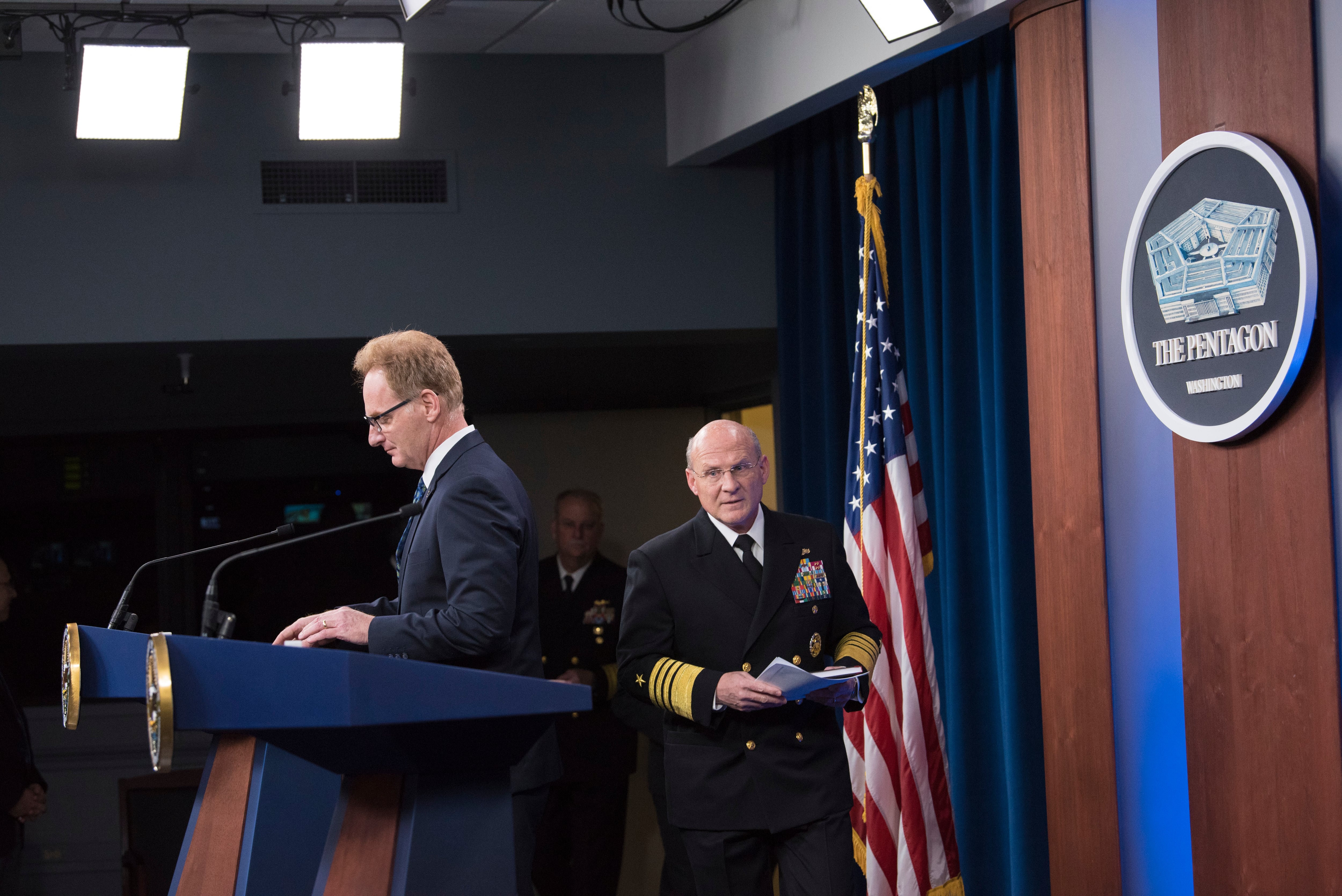
NT: The book addresses the “pipe dream” of the 355-ship fleet that has lived on for years, propelled by online navalists, mentioned occasionally by think tankers. You’re not alone in kind of framing it as a pipe dream. Why does that pipe dream keep enduring in your view?
Modly: I think first of all, it’s not a random number. I think there were some analytics behind that, that derive that number. The problem with that number is that everyone agreed to it, but no one was willing to actually do anything about it.
In reality, there was no funding behind it. There was no budget behind it. And when you look at the order of magnitude increase in the size of the Navy, regardless of what types of ships you’re talking about, the size of the Navy was going to go from like 275 to 355. That’s a 35% increase in the size of the fleet. And there was no commensurate budget increase to reach that, because it’s not just the number of ships, it’s all the maintenance that’s required. It’s all the operational costs that are required. And it’s the number of sailors you need to man and equip them. And there was no plan for any of that.
When I first got there, I started looking at these plans. And I know [President Trump] was out there on the campaign trail talking about 355. And I look at these plans, and you looked over the FYDP [Future Years Defense Program] and it was pretty much a very gradual increase. And then after that there was this hockey stick increase of non-budget informed numbers. Oh, yeah, we can get that to there by 2045, or something like that.
And it was just ridiculous, I always thought it was just a very ridiculous way to frame the problem. That chapter I titled “Room Full of Mirrors,” because I talked about how people can get very comfortable about lying to themselves about stuff that they know that’s not true. And it sort of takes someone to come in there with a hammer and start smashing those mirrors and saying, “okay, look, you know the truth is we can’t get there unless we make some dramatic changes, some dramatic rudder corrections,” and during the five months that I was there as the acting secretary, I really tried to push that forward against some major headwinds.
NT: A theme early in the book is your attempts to break the mold in the Pentagon and within the Department of the Navy, the challenges and the resistance you met when trying to implement fresh ways of thinking or fresh policies. Why do you think the Navy is resistant to breaking the mold in that way? And tied to that, do you think it can be fixed? Or is it just the very nature of the beast?
Modly: I think it definitely can be fixed. I think history has many examples of how it can be fixed and how it can change. But it really takes somebody who pushes forward very forcefully, and some people that are converted, that agree that the changes have to come.
You look at how we developed naval aviation, that was resisted for a long time by the battleship people, but it took some battleship people to really jump on board with that, to drive it forward. Same thing with the nuclear Navy and Adm. Rickover and all he did to drive those programs. So I think it can happen, I just don’t think it can happen in a short amount of time. And that’s one of the challenges we have is that we don’t have sustained leadership in the Pentagon to make those kinds of changes or a sustained commitment to them.
So to your first question, why do I think they’re so resistant is because they don’t want to break anything, because they feel like they’re so stressed right now, with the limited amount of resources they have to perform the missions that they have, and to maintain the ships that they have, that any type of disruption to that, I think they’re concerned it will just break the Navy, and it’s a valid concern.
But eventually, something’s going to have to change in order to get the fleet better prepared for the century.
NT: You write about the aircraft carrier Gerald R. Ford and the attendant delays that it endured during your time in the Pentagon, even as the ship just wrapped up its maiden deployment this month. You write about speaking with leadership, and I believe President Trump, about his frustrations with Ford. Has your view evolved on those issues that plagued Ford before it entered the fleet? And what are your big takeaways from those challenges? Tied to that, what should have been done differently when it comes to a first-in-class capital ship’s development?
Modly: I think most everyone involved in the program has come to the realization that rolling out 21 new technologies on a platform like that simultaneously was probably a mistake, and that they probably should have phased those in over the subsequent ships in the class. I think that that was a strategic decision made way back when [Donald Rumsfeld] was the secretary of defense, in order to push for faster modernization and transformation of the fleet.
The things that they’ve done on that carrier, and I tried to explain this to the president, and I explained this in my book, were really done for a lot of very, very good reasons. Increasing the ability to have sorties at a much higher rate, moving the fueling stations, going to the electromagnetics, which will allow you to more quickly send aircraft of different sizes, to include [unmanned aerial vehicles] off the deck of the carrier, the ability to have significantly reduced manning in the arresting gear rooms. Being able to drive down the number of people you need on it is important. The fewer people we have to put out at risk, the better. And it’s less expensive. So over time, I think those things will pay off.
But unfortunately, a lot of the problems came to roost sort of at the time when President Trump was elected, and it got on his radar, and he was very, very negative about it.
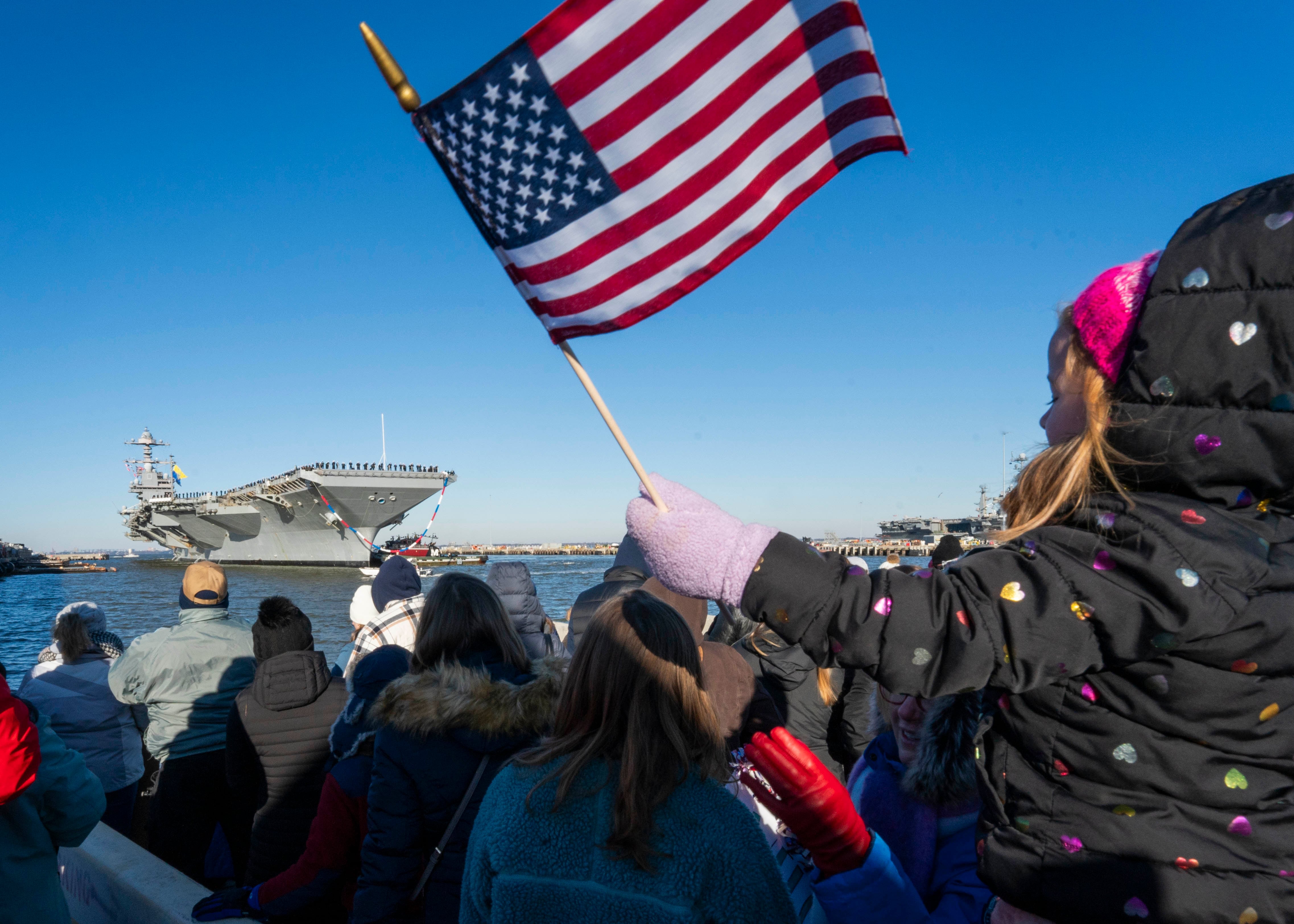
NT: I don’t know how keyed in you are these days to the defense acquisition world, but do you get any kind of sense whether lessons will be learned from Ford going forward? Or are these mistakes prone to be repeated?
Modly: Oh, I think there are some mistakes that are prone to be repeated. I think the big lesson hopefully will be learned. But there are good questions to ask about the Ford in and of itself. And in terms of, once we get past [the future aircraft carrier Doris Miller], are we going to build any more of these? And what’s the strategy for that? And one of the things that I tried to do early in my time as the acting secretary was to set up a task force to look at that question. What’s the future carrier going to look like? Is it going to be another Ford class, or are we going to go in a different direction? And I assembled a team of outside experts, advisors, chaired by [Sen. John Warner], and [former Navy secretary] John Lehman was on it, and asked them to start looking at that question.
And when Sen. Warner agreed to chair that committee for me, he said, “I’m only going to do this if you tell me that you’re not pre-determining any solutions. So we come back to you and tell you that we don’t think we should have any more aircraft carriers, are you going to reject it, are you going to bury it?” And I said, “no, I’m not prejudging anything. I’d like to hear what you guys have to say about this.”
Unfortunately, about a week after or a few days after I left the Pentagon in the spring of 2020, they disbanded that whole office.
And so I really don’t know where they are on that question right now. But we’ve basically burned through four years of not looking at it seriously, which I think is a problem.
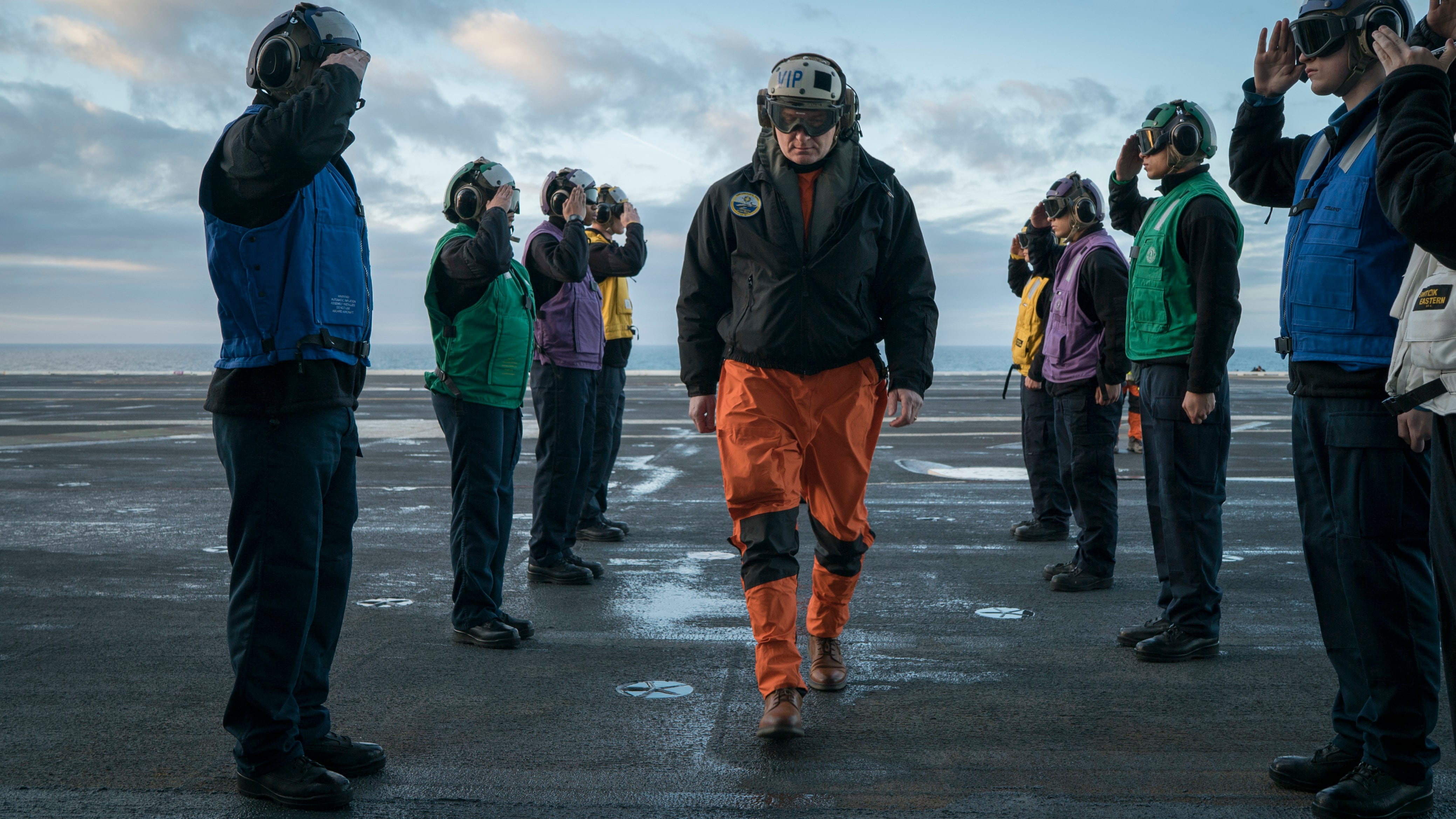
NT: Turning to early 2020, COVID, the Theodore Roosevelt, Capt. Crozier, the series of events that led to your resignation. At one point in the book, you write about how you suggested, but did not direct, then-CNO Gilday to reach out directly to Crozier as TR was making its way to Guam, the crew was catching COVID and the ship was being evacuated.
You also write that Gilday never reached out directly to the ship. It sounds like you didn’t give him a direct order to do that, but you kind of strongly suggested it. You note that he cited concerns over unlawful command influence. You criticize Gilday, or you express bafflement rather, that he didn’t reach out, and you note an angry exchange you two shared about why he hadn’t personally contacted the ship.
You also note that the then-head of U.S. Pacific Fleet, [Adm. John Aquilino], was also nudged to reach out to the ship directly and did not do so.
Why do you think these two uniformed Navy leaders did not get involved directly, as you suggested that they do? Looking back, do you think it was kind of an adherence to potential Navy legal strictures? Do you think it was political preservation on their part or something else?
Modly: Oh, I think that political preservation had nothing to do with it. There’s no question in my mind that both Adm. Aquilino and Adm. Gilday had the best interests of the Navy and the service and the ship in mind with every decision that they made. I don’t really know why, particularly Mike Gilday, did not do what I asked him to do. He mentioned to me that he didn’t think that it was his role as the CNO to sort of reach down that far into the organization, and my conclusion having spent time in the private sector and in the military was that those kinds of days were over.
We have the advanced communications, we can pick up the phone, we can use secure channels and call somebody and find out what’s going on, particularly when a ship like that is in a crisis, the nation is in a crisis. It’s now on the president’s radar, I just felt like it was his responsibility to do it. And he just didn’t. And so I can’t explain why.
When we first made the decision to send the ship into Guam, I had my chief of staff reach out to [Crozier] immediately. [I wanted] to come out there and spend some time with the crew on Guam and make sure they’re getting everything they wanted to get. And that was within a day of them getting into Guam. So I don’t know, this may be the way that I was trained and the way I learned. To me, it’s always your responsibility to do that. And so that’s what I did.
And I just couldn’t convince [Gilday] to do the same thing.
NT: Before Crozier’s email leaked, you write about another email from TR’s medical officers warning of “a calamitous set of circumstances” if the ship was not evacuated immediately. They were warning of scores of deaths in a relatively short period of time.
RELATED
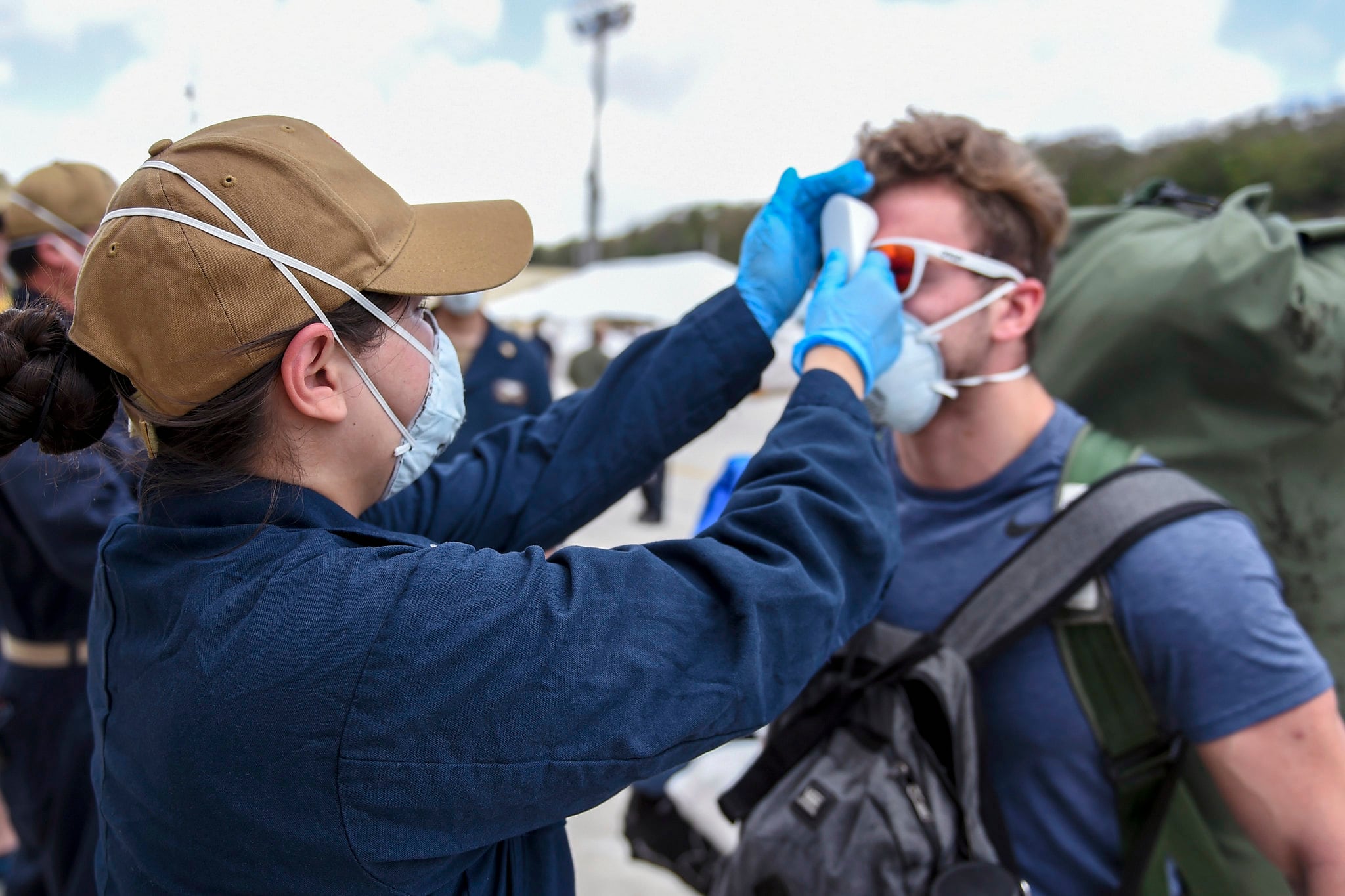
But you also write that none of these medical officers were infectious disease specialists, or endocrinologists, or immunologists. And that, in their email warning about this, they threatened to go public with their concerns, and you said it basically amounted to a “medical mutiny.”
At the same time, your book does note how hindsight is 20-20. And in spring of 2020, everything was very uncertain. People, even though they had jobs to do, were a little spooked and scared.
Are you a little bit more forgiving of those medical officers nearly four years later? Or do you still feel that was a pretty big sin on their part, and they were just way outside of their lane?
Modly: Well, it’s sort of two separate questions. I don’t hold a grudge or don’t forgive anybody for anything. To me, they made a really bad mistake, a really bad judgment error. And I think they took it to the point where they basically, not only did they threaten to make the information public, they said that they were going to make the information public. And this was a statement from them in their letter, which they all signed.
That letter also said that if we didn’t evacuate the ship of every sailor, that within 10 days, 50 of them were going to be dead from COVID. As a medical professional, I think that’s extremely unprofessional. And so I understand that they were concerned, possibly panicked, possibly fatigued. But that’s not what we expect from medical officers on a warship.
When I first heard about this letter and I was talking to the chief of Navy medicine and the CNO, and the response was, well, we think they’re just tired and they don’t really mean it. And I’m like, okay, well, then, if that’s the case, then why don’t you get them off the ship and get some people over there who aren’t tired, who can handle this? And they assured me that there was a 15-person medical team coming from Okinawa, a Marine medical team. So I felt better about that at that point.
But to me, it was just a series of people making really bad judgments in a crisis. And so I don’t hold any grudges against anybody in this situation. It was a bunch of circumstances; it was a very strange time in the country. And we all just got caught up in it.
RELATED

NT: Turning to Crozier, you write that he no doubt cared about his sailors. And you never in the book question his dedication to the service, or his service to the country leading up to these incidents, but you do take issue with how he handled the COVID outbreak, the leaked email and all that stuff. Tell us, in your own words, what issues you took with how Crozier handled his COVID outbreak, the email and the aftermath of that.
Modly: Sure, I appreciate that. The book is about 400-some pages long and there’s at least 100 and some pages dedicated to the COVID crisis on the TR, so there’s a lot of detail in there that is difficult to go through in a short interview.
But essentially this came down to just an issue of trust and confidence. And as I mentioned before, I had Title 10 responsibility for manning, training and equipping our ships, and ensuring that we have the right people in charge of those ships. And in that moment, it was my judgment that he was making bad decisions.
I spoke to him again afterwards. This is a day after his letter had leaked. And he seemed very calm and said things were going better, that they had more than enough ventilators, that the rotation of the crew off the ship was working, that the hospital rooms had now become available, and so on.
RELATED
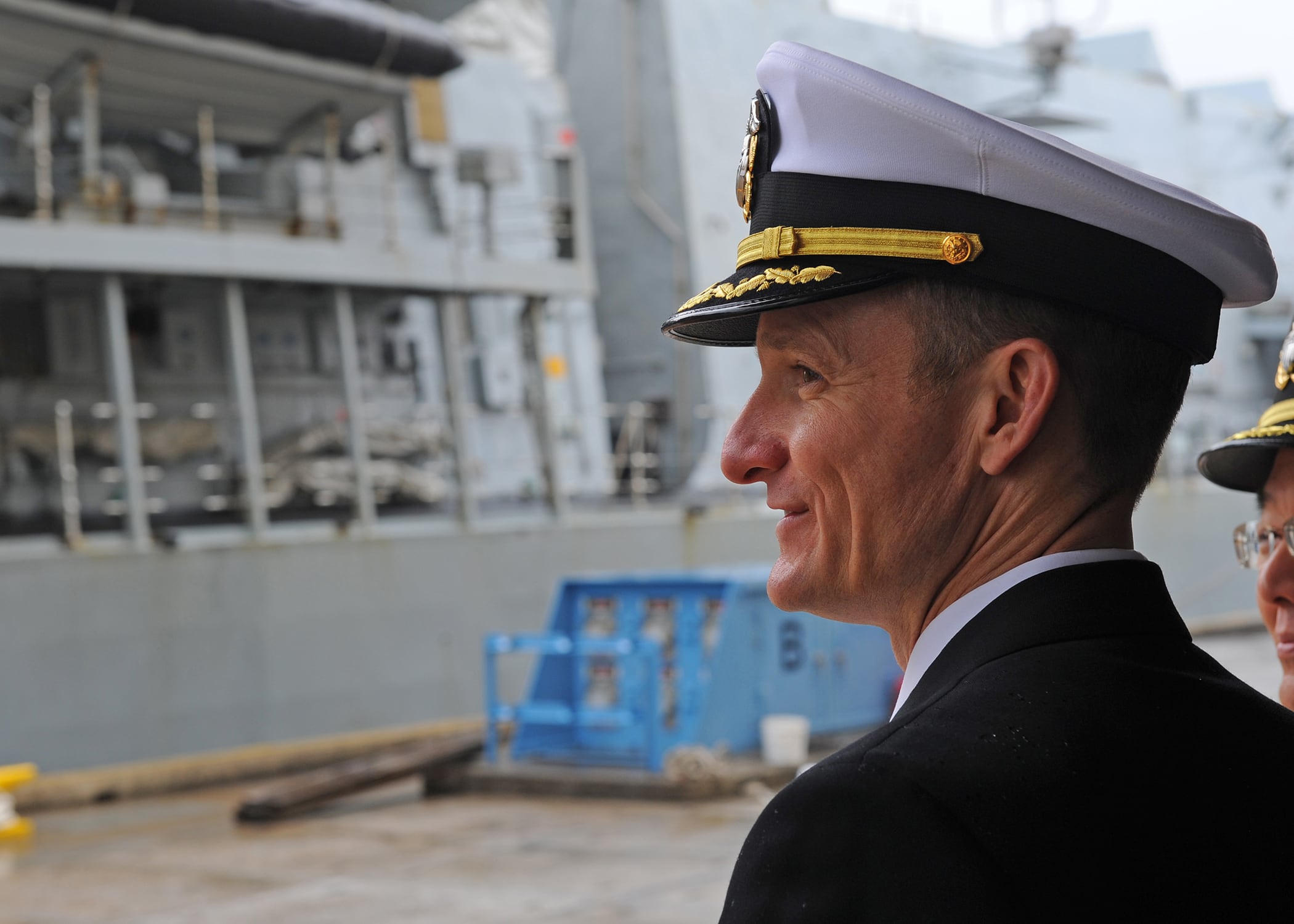
And so I said, “okay, well, it’s only a couple days later, why did you send that email?” And he said, “well, we had just gotten some tests back. And I think that batch of tests pushed the number of positive cases of COVID cases up to over 100.” And he said, basically, that he felt it was time to send up a signal flare, or red flare.
To me, that’s something you do when your ship is at the waterline and it’s sinking. It’s an indiscriminate distress signal. And in that moment, I thought that was just an inappropriate thing for him to do.
I ended up talking to a lot of different people that week, including a lot of four stars and others, to try and understand, other people who had been strike group commanders and carrier commanders, and every single one of them said that his actions were relief-worthy. But it had become a public relations issue at this point, because he was being promoted by the media as someone, quote unquote, speaking truth to power to Washington, and Washington wasn’t listening.
And nothing could have been farther from the truth. Because we were involved and engaged from the very beginning. And you don’t just mobilize 900 people on Guam overnight to address this thing.
By the time it got towards later in the week, I talked to the strike group commander himself, and he told me that the captain confided in him that the reason he didn’t share the email with him prior to sending it out was because he knew that the strike group commander would not have let him send it.
And I asked the strike group commander, [Rear Adm. Stuart Baker], would you have let him send it? And he said, “no, I wouldn’t have, it would have been inappropriate for him to do so.” And I said, “so do you think he should be relieved?” And he said, “yes, I think he should.”
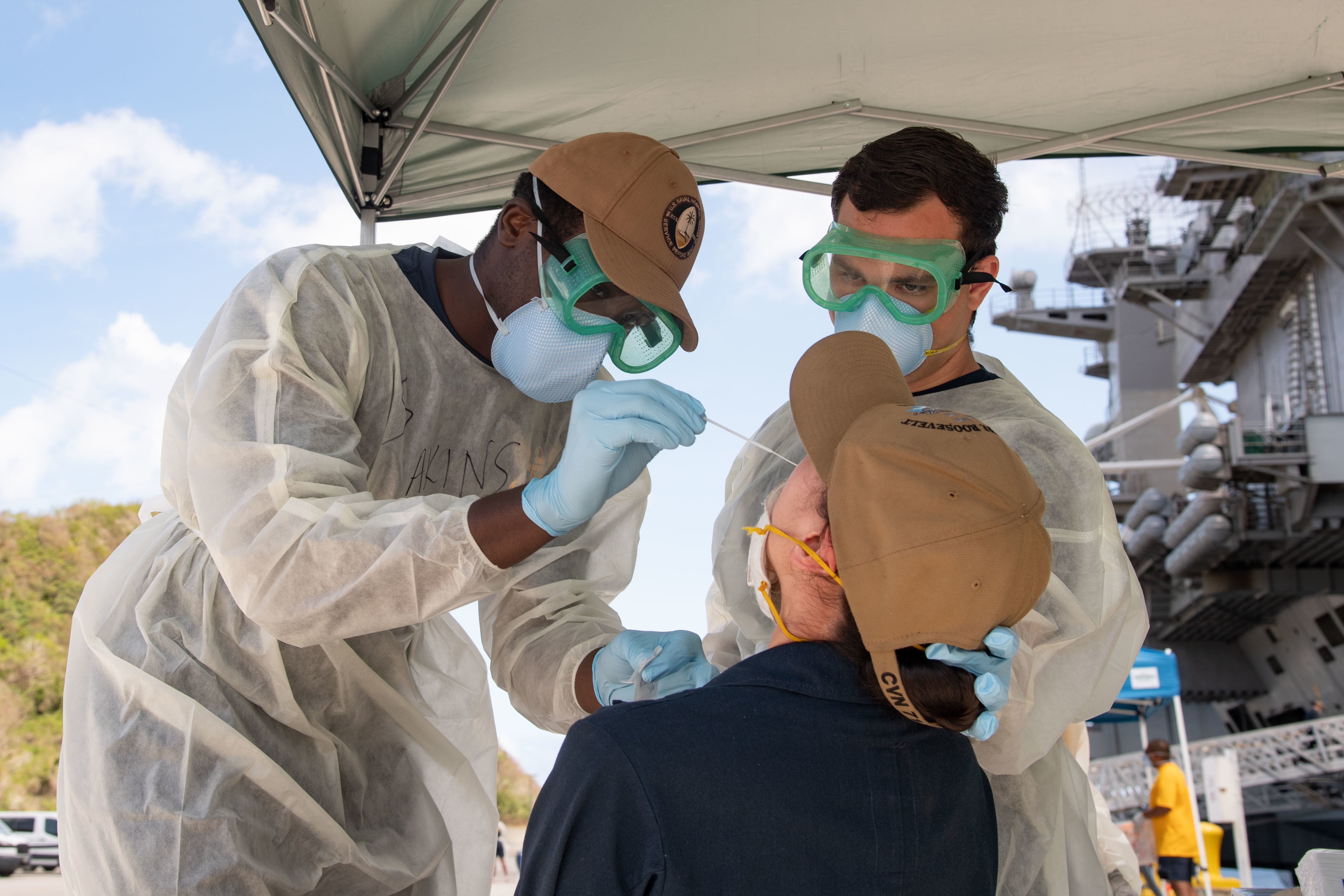
And I don’t know if I pressured him. I mean, I’m the secretary of the Navy, he’s a one-star, he may have felt like I pressured him. But there were several other people on the call who told me I was leaving it very open-ended for [Baker] to answer.
But it didn’t really matter at that point, because what I learned from the admiral was that the captain was pretty intentionally insubordinate to his strike group commander. And I just felt like I needed somebody on the ship that was exercising a little bit better judgment in that moment, while the ship was in crisis. And so that’s why I made the decision to relieve him.
NT: How would you have felt about that signal flare email going out if things weren’t moving? You frame this as the wheels are in motion, basically, and that the plans are working, the 900 people were there on Guam working to get the sailors off the ship. Would there have been a time, in your view, when him sending such a signal flare beyond the chain of command would have been justified? Or is that just entirely verboten in your mind?
Modly: Well, I don’t know. That’s a really difficult question to answer, because I don’t think it ever would have gotten to that point. Like I said, we were engaged from the very beginning. If we hadn’t reached out to him and called him, if nobody on Guam had been doing anything, if sailors were getting sick, really sick on the ship, and he had nowhere to send them, and he felt frustration with his strike group commander, his immediate point of appeal was the [U.S. 7th Fleet] commander.
In his email, he didn’t even send it to him. He bypassed him, he only sent it to aviators. So it’s a very difficult question to answer. I think obviously there are times when you have to take a risk. If you feel like the circumstances require it and that you feel like you’re saving people’s lives, but I just didn’t think that that was the time for that to happen. And that was a judgment call on my part.
NT: You write about this hero narrative that surrounded Capt. Crozier in the spring of 2020. This framing that he was the captain sticking up for his beleaguered sailors. You point to the much-hailed Capt. Crozier chant video when he departed TR for the last time after being relieved and how, despite all the concerns about COVID among the crew, you had a bunch of unmasked sailors massed there on the deck to chant him goodbye, which seems to run counter to concerns about the virus running amok within the ranks. Why do you think that Crozier hero narrative evolved over those few weeks? And who was responsible for it?
RELATED

Modly: I think, generally speaking, it’s because he’s a really good guy. I think the fundamental part of it is that he’s a really good guy and a good officer and was a great pilot and did a lot of very heroic things in his career. And he had developed a really close relationship with his crew. That to me was more than obvious. I think that if he hadn’t been that, if he had been a bit of a tyrant or Captain Queeg person, then that narrative would have had a very difficult time penetrating through.
And I think, because the crew loved him so much, and he had such an affinity towards them and felt like he was trying to do everything he could for them, which I also believe he was doing, I think that helped to feed that narrative. But also, I think that it was spun up and magnified by the media.
At that point in time, it was a presidential election. Many in the media were not essentially fans of the president and the president’s handling of COVID. And this was just another opportunity, I think, to demonstrate that the administration was uncaring and didn’t care about the little guy or the sailors. And that the president was perpetuating this because the president had been public with his displeasure with this captain.
And so I think that that sort of set the battle lines sort of artificially, but sometimes when those narratives get going, it’s impossible to stop them.
NT: I think some of your media criticism, as a journalist who covered some of this, is very fair. Particularly, you see descendants of Theodore Roosevelt penning [opinion articles] in some of our nation’s biggest newspapers about Crozier’s firing, when their qualifications to comment on such military matters were tenuous at best.
But I would also counter, from a journalistic perspective, that we only know what we know. And if I’m recalling everything correctly, more context about what went down aboard TR didn’t really come out until the summer of 2020.
Looking back, do you think the Navy or yourself should have provided a bit more real-time pushback to the “Crozier as hero” narrative?
Modly: I can talk about it from my personal perspective. I mean, I made a decision after returning from my visit to Guam that I couldn’t be effective in my job anymore. Because of the reaction in Congress, particularly the blue side of Congress, was so negative. They were calling for hearings. I was facing death threats. My family was facing all kinds of death threats and anger on internet. And I didn’t want my staff or the team, the Navy secretariat, to spend a minute of their time trying to rehabilitate my reputation or whatever needed to be done with Congress or anybody else.
I had a conversation with [former Defense Secretary Jim Mattis] about it. And he said, “you can treat this like your own Guadalcanal campaign, you can go and convince members of Congress, tell them the truth about everything.”
I said, “I don’t think that’s a good use of my time or the taxpayers time for me to go do that.” I was a political appointee. To some extent political appointees are expendable. And I just didn’t feel like it would be good for the Navy for me to stick around and try and correct that narrative.
The Navy conducted a formal investigation into this. They released their findings, and this is one of the things that Adm. Gilday wanted to do. He wanted to suspend the captain and then have this formal investigation, and I was very opposed to that idea. I felt like if you did that, you’d suspend him, he’d be sitting in some hotel room or something in Guam, the crew would still be looking at him as their captain, wondering what the Navy was going to do. And then the captain that we put in his place at the time would be not legitimate. So I just felt that was a horrible idea.
RELATED
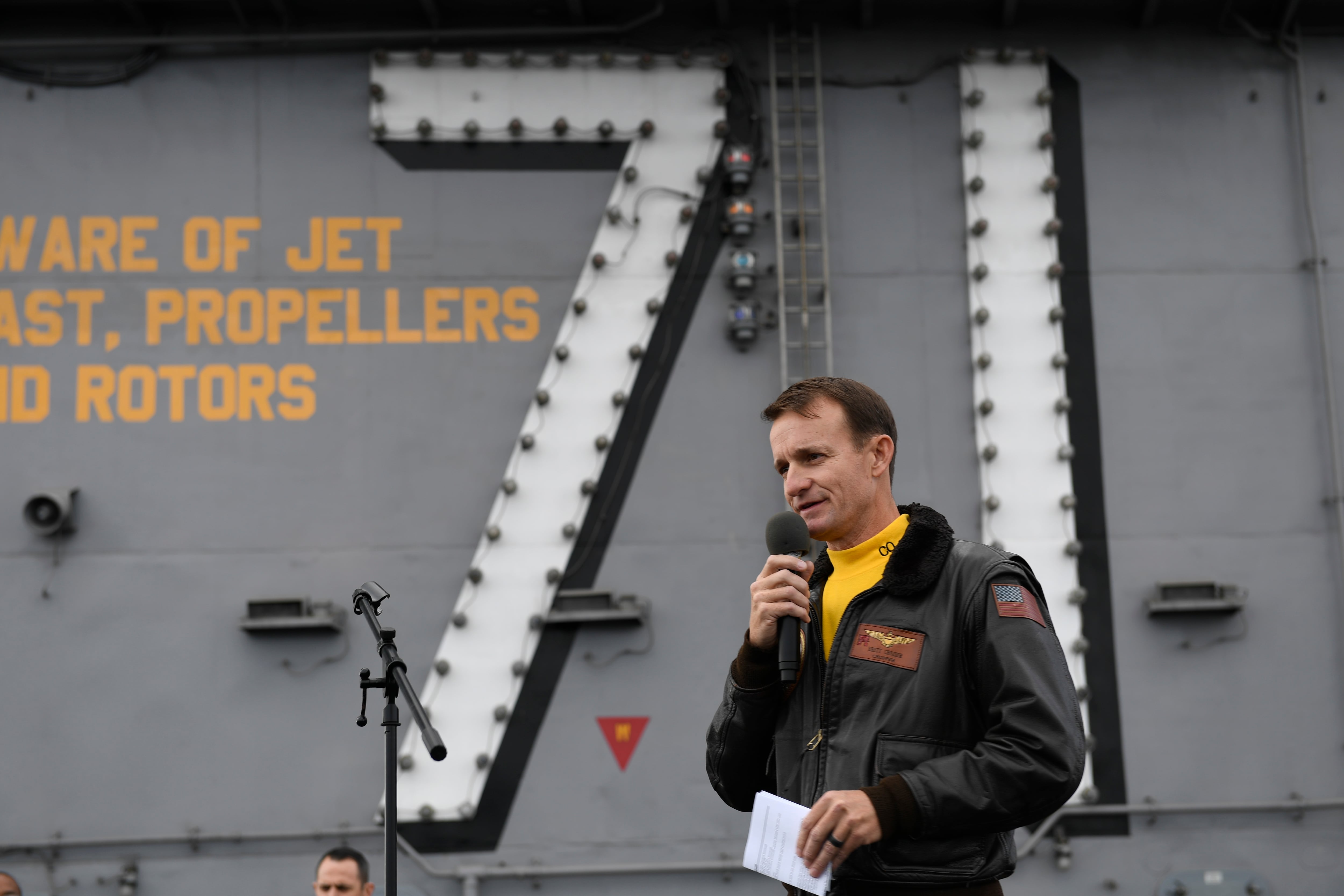
But [Gilday] felt like he could do an investigation in a matter of days. I’ve been in the Pentagon long enough to know that investigations don’t take days. They take weeks, months. That one started in April, or March, and it ended in June. So I wasn’t too wrong about that.
Interesting thing about the investigation, there’s only two people in the Pentagon that had any direct contact with Capt. Crozier or the strike group commander during that whole crisis. And that was me and my chief of staff, Bob Love, and neither one of us were interviewed for that investigation.
So I had no idea. I was home in Annapolis when the news came out, I didn’t even know [the investigation] was going to come out, that they found that he had done several other things that eroded his ability to be to be reinstated as the commanding officer of the ship, and many of those things I was unaware of.
But at that point, it didn’t really matter to me. The major transgression to me was the sending of that information on an unsecure channel. At that point in the game, it didn’t really matter. I figured, over time, history would correct some of the record.
But interestingly, when I met with him in Guam, I mean, of all the people who are angry at me for relieving him, he was one of the people that felt like it was the right thing to do. He told me that when I sat down with him. I said, “I just want to explain to you why I relieved you.”
And he said, “well sir, you don’t have to say anything more,” or, you know, “I put you in a terrible position as secretary and had I been in your shoes, I would have relieved me too.” And so I think he knew that what he did was wrong or not appropriate, and that he was running the risk.
Sometimes those risks pay off, and sometimes they don’t. So I was less concerned about Capt. Crozier and his career at that time than I was about getting a captain on board that could take care of those sailors and manage that process calmly and get the ship back to sea as soon as possible.
We ended up putting in the former commanding officer, Carlos Sardiello, in charge. He had been on there for two-and-a-half years and knew the ship very well. And the ship was back at sea within two weeks. So at the end of the day, despite all the pain, I feel like it was the right thing to do.
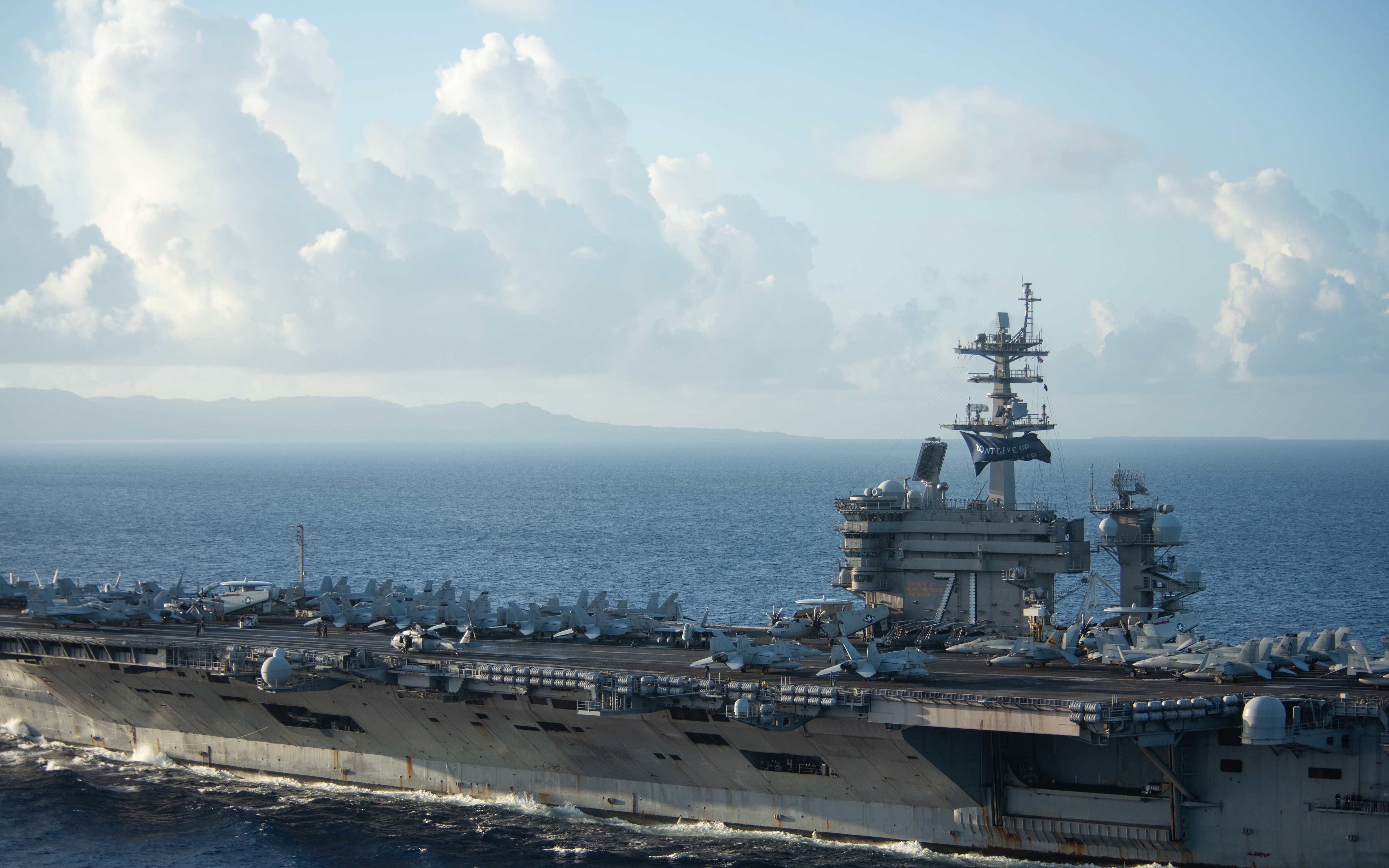
NT: You write about offering Crozier a Department of Navy position after his relief, acting as a liaison to other ships dealing with their own COVID outbreaks. Whatever became of that?
Modly: Well, the irony of that is that the only one that would have been able to fulfill that would have been me. And two days later, I was gone.
When I sat down with him in Guam, I told him that I believed in redemption. And I talk about redemption a lot in the book, and how much I believed in redemption. And mistakes don’t have to be fatal for people.
I’d spoken to every captain, every commanding officer of every installation and ship in the Navy that had COVID cases on it, and they all had my personal phone number. If you feel like you’re not getting what you need, there’ll be no retribution, just reach out to me directly. And all of the other captains and COs I talked to, they were all very calm. They had very good procedures, even the commanding officer of the [Ronald Reagan], which is a carrier, the same class as Roosevelt, had very good procedures in place, and no one seemed to be panicking. And they felt like they were getting good medical advice and good medical attention from the Navy medical commands.
So when I sat down with Capt. Crozier, I said, “I believe in redemption, and I’m willing to help you get your career back on track if you want.” I’d already talked to [Vice Adm. DeWolfe Miller], “Bullet” Miller, who was the head of Naval Air Forces and he got a job for him in Coronado on his staff.
I said, “if you want to come to Washington and work for me with my team, I’m gonna need someone. You’re the most practiced Navy captain with COVID on your ship, and I’m sure you’ve learned a lot. And I need someone to talk to those captains every day. And so if you want to come and do that and help us manage through this, this is going to be going on for at least another nine months to a year.” I mean, that was my prediction. I had no idea if I was right.
And he kind of shook his head and said “thank you.” But I think he sort of knew that that wasn’t really something that he wanted to do. And plus, as I said, as a political appointee, I didn’t know how longer I was going to be there anyway, to be able to fulfill it. I can tell you this much. If he had wanted to come and do it, I would immediately have had him in my office doing the job.
NT: Circling back to the investigation. Did you ever get an explanation from anybody regarding why you weren’t interviewed?
Modly: Nope. Never got a debrief. All I got was a heads up from the public affairs people.
At that point, I was very prepared. I’d written one statement that basically assumed he had been reinstated, and another statement for if he hadn’t been reinstated. I really had no idea where that was going to go.
NT: Turning to when you flew out to the TR and addressed the crew on April 6, 2020, a few days after you relieved Crozier, arguably the pivotal event that led to the end of your tenure. How would you have handled that differently, looking back?
RELATED

Modly: Oh, Geoff, I could have handled things a million different ways from the very beginning of that thing. And I think about that all the time.
The biggest challenge with the whole trip to Guam, my original intention, was to basically do nothing but go see what’s going on on the ground, talk to the governor of Guam, because she was the one that was providing the hotel rooms.
And then meet with the crew, walk around the ship, just like I always did every other time I met with a ship, walk around the decks, go down to the engine rooms, talk to people, see exactly how they were feeling, assure the captain and strike group commander that we had their back in Washington, and that everything was going to be fine. And that we really needed them to be courageous in this moment.
A huge wrench was thrown into that when both the medical teams and the [Naval Criminal Investigative Service] people who were responsible for my safety advised me, or told me, that I couldn’t walk around on the ship, that I needed to go address the crew from a clean room, right off the quarterdeck.
And I made the huge mistake of listening to them. And that’s on me. But in advance of that, I asked [TR’s crew] to submit questions, because I wanted to be able to answer every question that they had.
I think there were 33 questions. And some of them were more logistically focused on what’s the process for getting us off, when are the hotel rooms gonna be available, and so on and so forth. But some of them, frankly, were a little bit disrespectful and also made me recognize that they weren’t getting good information about what was happening on the ground.
One of the questions was, how many dead sailors on the TR would have been acceptable to you before you got us any help? That was sort of the tone of a lot of them. Several other questions were, we’re not at war, why should sailors die, and those types of questions, and it just made me feel like the leadership of the ship had not done a great job of communicating what was going on and what the risks were.
During the morning, I had spoken to the governor and the governor told me that the captain’s letter had caused her three days’ delay in getting the hotel rooms, because the population in Guam was very fearful of all these sick sailors coming into their hotel rooms, because she had to recall all the people to work there. And they didn’t have the type of medical facilities on Guam to handle a massive outbreak of COVID.
And the sailors on the ground who had been working 15-hour days to set up the room service and shuttling of sailors back and forth ... they had told me that when the captain’s letter went out, it kind of took the wind out of their sails, because it made it sound like no one was doing anything to help them. Nothing could have been further from the truth.
I just really wanted [TR sailors] not to be afraid. They weren’t in the U.S. when this was going on, they didn’t understand what the nation was going through, and how much fear was driving the narrative in the U.S.
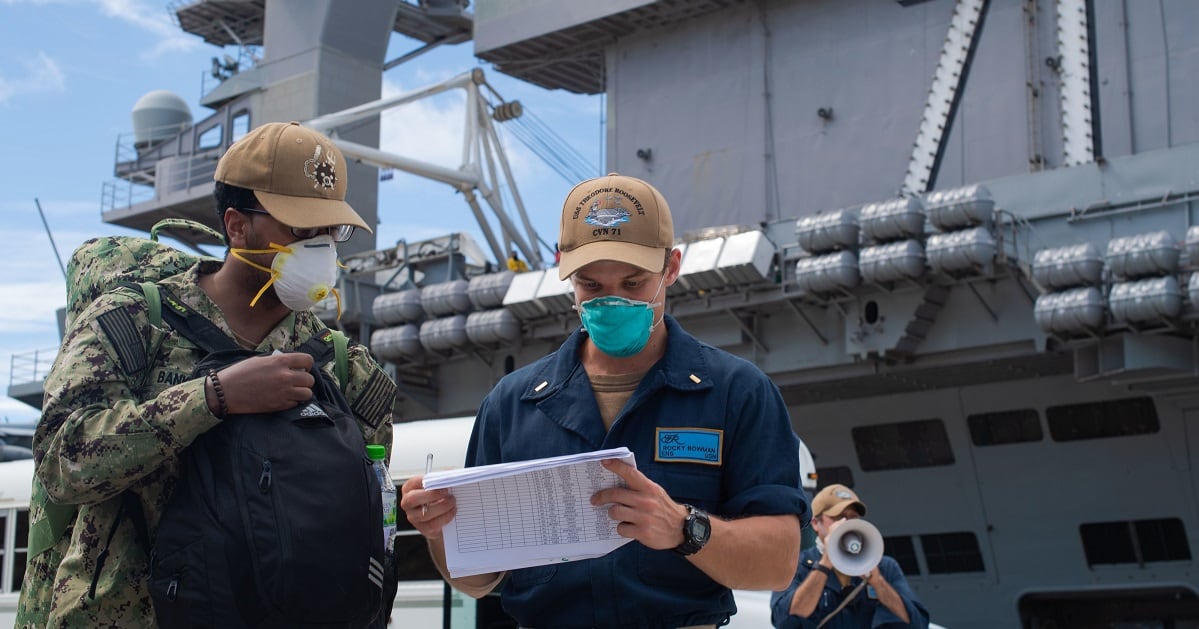
But I wanted them to understand that the one place that we can’t allow fear to drive the narrative is in the United States Navy. And that if anyone can handle a crisis like this, it should be the United States Navy. And I told them that they could be afraid, but they’re going to be facing fears much greater than this.
There’s some words I could have chosen more carefully. There was a particular quote that I pulled from my response to the Tweed Roosevelt piece in The New York Times, about naiveté.
And the media ran with that, to suggest that I was saying the captain was too naive and stupid to be a commanding officer of a ship. But actually, the reality was, I was saying the opposite, which was he was not naive and stupid, that he did this on purpose. And in doing it on purpose, being intentionally insubordinate, this was a violation of chain of command and the [Uniform Code of Military Justice]. And it just didn’t come out that way when I said it, and that’s really on me.
I had sort of admonished them a little bit about using the media as part of their chain of command. And then I moved on to prepared remarks that I’d given at the Naval Academy graduation in 2018, about love and how it really wasn’t their responsibility to love their captain, even though I knew they loved him, and that he loved them, that it was their job to love the country and the Constitution that they pledged their lives to defend, and to love and take care of the people that work for them.
It’s not your job to worry about your captain, that’s my job. And I sort of admonished them. And someone was taping my remarks. And they sent it immediately to NBC News, which then picked up and cherry-picked what they wanted to hear.
It took me almost a year to sit down and actually listen to that audio recording, to be honest with you, because I knew what their narrative said, I remembered what I said, but I never really heard it. And when I listened to it, I noticed that I really wasn’t screaming, I was being forceful. But I pretty much had the same sort of calm approach that I’d always have. But we were talking about serious things. And so that’s what that speech was about.
And when I left the ship, I sort of felt like, well, I kind of missed the mark. I really should have just walked around the ship and talked to people, but what was done was done and that was it.
NT: Do you think the newsworthiness of the leaked audio of your talk on the TR was made more newsworthy due to your occasional use of a couple of swear words in it? It’s rare to hear a senior defense leader dropping an F bomb.
Modly: It’s very rare to hear that in public, but I challenge you to walk around the Pentagon, or a ship, or an installation in the Navy, or a media newsroom, or any number of these other places that were so critical of it, or the halls of Congress [and not hear similar language].
So, I’m not naive about that. I know that was a mistake. I didn’t think that it was going to be broadcast around the world. To me, I was talking to sailors on a ship. And having been a sailor on the ship once in my life, honestly, I didn’t even know I used the word until I heard it, or it was broadcast. There’s probably like 2,000 or 3,000 words in that speech. I think there’s one F word and like two S words in the whole thing. And I think I probably talked about love like 15 times.
So, there’s no excuse, I can just tell you that the use of it was not something intentional. I didn’t do it for effect. It’s just the words that came out at the moment, and I wasn’t really cursing at them, I think I used the F word to describe a hypersonic missile or something, in terms of what they should really be worried about. So yeah, major, major unforced error on my part, and I can’t get it back. It just is what it is
NT: The book suggests you’ve given a lot of deep thought and reflection to your time helping to lead the Navy. You have a quote about how we do our best with what we know and what we believe in the moment, and we try not to be reckless or inconsiderate in the process.
Looking back, do you feel like you can extend that same grace to Crozier, or any of the other subjects in the book whom you take issue with? Does everybody deserve a little bit of that “hindsight is 20-20″ grace in this saga?
Modly: Oh, for sure. For sure. A lot of people deserve it. As you notice, in the book, I talk about heroes and villains in every chapter. And I think that the villain in that chapter or the one before that is gracelessness. Because I don’t think anybody was cutting anybody slack during the early days of the crisis, or even now in Washington, it’s game on all the time.
And so, yeah, I think what’s important to understand, and maybe I hope it came through in the book, is that my decision there, my decision to relieve Capt. Crozier, was not a punitive move on my part, although it had punitive implications for his career.
It was more because of my responsibility to ensure that a captain in a crisis on a ship of that magnitude was making good decisions. And my sense was that he was not. And I needed to get the ship back to sea, and I wanted a steadier hand in charge. And that was it. If I had felt like he was not a good CO, or not a good person or a good officer, I never would have offered him the opportunity to come work for me. It’s just that at that moment, I felt like the ship needed a steadier hand. And that’s why I did it.
NT: As far as the other people that were involved at the time, Adm. Gilday and others?
Modly: I don’t even know that there’s anything for me to forgive, they were doing the best that they could at the time. I know that they believed what they believed. And we had differences of opinion. And, you know, frankly, when I told him that I was going to make this decision, and we talked to the secretary of defense about it, he fully supported me. I know he didn’t want to, but he did fully support me. So, I always am very grateful for that and respect him a lot for that. It’s a really hard job that he had.
The regrets I have are more sort of looking back on, had I had more time to develop a longer-term working relationship with [Gilday], things probably may not have happened that way.
If I had ignored Crozier when he told me not to come to Guam [before the leaked email and firing], I guarantee you, none of this would have happened. Because he would have known I was coming, he wouldn’t have felt the need to send a letter. I could have been there and I could have put eyes on and said this is not going as quickly as it should, or I could have met with the governor and all those things that could have happened.
Usually, it’s not just one thing that causes a crisis like this. But to me, that was the inflection point. When we called him and told him I wanted to come and he asked that we don’t come, I should have overruled him and just gone. Because I think all this would have been avoided. and then the nation would have moved on to some other crisis in COVID. I think that the Navy report on the whole TR incident came out in June. And I think we were full bore into George Floyd and everything else. And so, it was the next crisis, the next COVID crisis of the day.
NT: Hell of a year, to put it lightly.
I asked Crozier this, but I’m curious about your take too. He was relieved, you resigned. As a human being, you’re a successful individual before you led the Navy. How personally devastating was it having your tenure come to such an abrupt end? And was there a bit of a recovery time for you and or your family following everything that happened? Or were you able to kind of move on and move back into the private sector rather seamlessly?
Modly: Oh, I don’t think you can ever really do that. Most experiences like that are pretty life defining. You don’t want it to define your life. But it was, frankly, it was very devastating for me, but I knew I had to do it, I knew I had to resign. It wasn’t a hard decision. But it was a painful decision. Because I loved the job. I loved the people that I worked with. The people that I brought in made a lot of sacrifices to come in from the private sector to help me with the job. All the people that I met, all the sailors I met, all the veterans that I met, just unbelievably irreplaceable experiences. And to some extent, you feel like you let them all down when you have to leave in such in such a way.
As I write in the book, as I was leaving Washington, and we were driving down the 14th Street bridge back to Maryland. I looked at my wife, and I said, “wow, I never thought I’d be leaving Washington, D.C. like this.” I’d spent 30 years there.
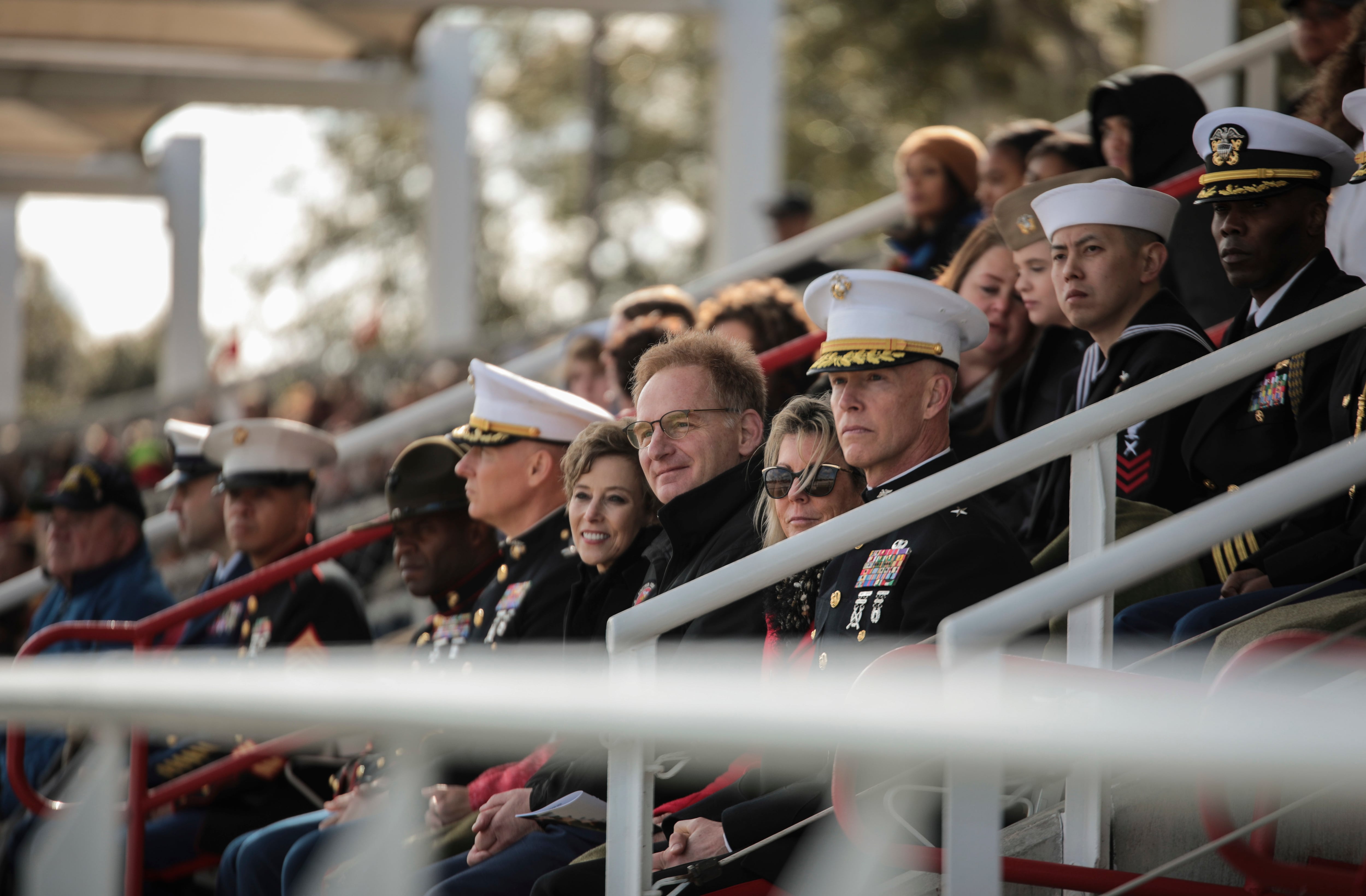
She said, “well, you must think an awful lot of yourself if you thought it could happen any other way in this town.” And that kind of helps ground you a little bit. But it was very, very difficult for me and for my family. But that’s the nature of politics. And unfortunately, I think it’s the nature of politics and government in this era. And it’s very unfortunate, but I would never, ever discourage anybody from serving because of what happened to me. I cherished every single moment of it. And even the hard times, there were always silver linings in every single difficulty that happened when I was there.
And frankly, if I hadn’t had that circumstance at the end, I don’t know that I would have written a book. And the book is about a lot more than just the TR. It’s about all kinds of lessons and all kinds of challenges that we face in the Navy. And hopefully people will pick it up and pay attention to it.
NT: What are you up to these days?
Modly: I’m doing a little bit of consulting, a little bit of stuff with the book, some speaking engagements, and I’m starting to write another book right now. Just outlined it and excited to get going on that and have a goal of getting that done here by hopefully by the summer. So, we’ll see. Totally different subject, nothing to do with government.
NT: What’s your favorite Navy ship?
Modly: My favorite Navy ship is the USS Cleveland. That’s the LCS 31. That’s hasn’t been commissioned yet. But my wife’s the ship sponsor. That’s where I grew up and I’m very proud to have been the person to help influence Secretary Spencer to name that ship for the city of Cleveland. And that’s been a fantastic experience for us, getting to know so many civic leaders in Cleveland, and they’re super excited about the ship and everything. So that’s been great.
Probably the second favorite is one that also was not commissioned, but that I had the honor of naming, which is the Doris Miller, CVN 81, which I named after an African American sailor who was a hero at Pearl Harbor.
And that was probably my greatest day in office. That was four years ago on Martin Luther King’s birthday when we named that ship out in Pearl Harbor. And I’m super excited for that ship to get completed and commissioned.
Correction: an earlier version of this story misstated the name of a senator who served on Modly’s carrier study group. The senator was the late John Warner.
Clarification: this story has been updated to reflect Modly’s actions when the TR investigation was released.
Geoff is the managing editor of Military Times, but he still loves writing stories. He covered Iraq and Afghanistan extensively and was a reporter at the Chicago Tribune. He welcomes any and all kinds of tips at geoffz@militarytimes.com.
